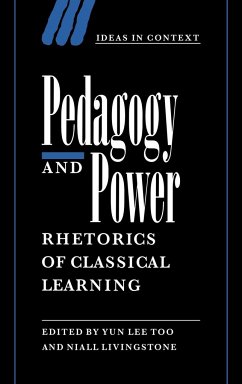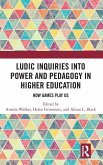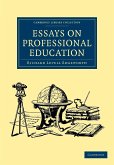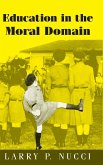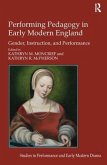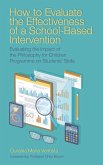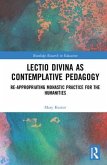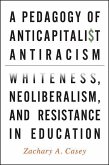Pedagogy and Power is a volume of interdisciplinary essays which explores the political dimensions of Graeco-Roman education and of its subsequent models. Seeking to make the various structures and discourses of intellectual authority more apparent, the essays argue that there is a social context for the knowledge imparted by classical models of pedagogy. They examine how such pedagogues instruct their pupils to function as citizens who rule or are ruled, privileging certain knowledge over others, and including some individuals while excluding others. Overall the book shows that the complex and plural authorities and power that have been associated with classical learning and knowledge are not part of a legacy to be unproblematically inherited or reproduced.
Table of contents:
Introduction Yun Lee Too; 1. Classics: from discipline in crisis to (multi-)cultural capital Paul Cartledge; 2. Schoolboys and gentlemen: classical pedagogy and authority in the English public school Christopher Stray; 3. 'Die Zung' ist dieses Schwert': classical tongues and gendered curricula in German schooling to 1908 Sarah Colvin; 4. 'What does that argue for us?': the politics of teaching and political education in late eighteenth-century dialogues Clare Brant; 5. Women and classical education in the early modern period Jane Stevenson; 6. Pilgrimage to Parnassus: local intellectual traditions, humanist education and the cultural geography of sixteenth-century England Warren Boutcher; 7. 'Not so much praise as precept': Erasmus, panegyric and the Renaissance art of teaching princes David Rundle; 8. Teachers, pupils and imperial power in eleventh-century Byzantium Panagiotis A. Agapitos; 9. Reading power in Roman Greece: the paideia of Dio Chrysostom Tim Whitmarsh; 10. Children, animals, slaves and grammar Catherine Atherton; 11. A good man skilled in politics: Quintilian's political theory Teresa Morgan; 12. The voice of Isocrates and the dissemination of cultural power Niall Livingstone; 13. Xenophon's Cyropaedia: disfiguring the pedagogical state Yun Lee Too.
An exploration of the political dimensions of Graeco-Roman education and of its subsequent models from a range of intellectual perspectives. Classicists, historians, philosophers, and literary scholars explore the role of classical learning in education.
An exploration of the political dimensions of Graeco-Roman education and of its subsequent models.
Hinweis: Dieser Artikel kann nur an eine deutsche Lieferadresse ausgeliefert werden.
Table of contents:
Introduction Yun Lee Too; 1. Classics: from discipline in crisis to (multi-)cultural capital Paul Cartledge; 2. Schoolboys and gentlemen: classical pedagogy and authority in the English public school Christopher Stray; 3. 'Die Zung' ist dieses Schwert': classical tongues and gendered curricula in German schooling to 1908 Sarah Colvin; 4. 'What does that argue for us?': the politics of teaching and political education in late eighteenth-century dialogues Clare Brant; 5. Women and classical education in the early modern period Jane Stevenson; 6. Pilgrimage to Parnassus: local intellectual traditions, humanist education and the cultural geography of sixteenth-century England Warren Boutcher; 7. 'Not so much praise as precept': Erasmus, panegyric and the Renaissance art of teaching princes David Rundle; 8. Teachers, pupils and imperial power in eleventh-century Byzantium Panagiotis A. Agapitos; 9. Reading power in Roman Greece: the paideia of Dio Chrysostom Tim Whitmarsh; 10. Children, animals, slaves and grammar Catherine Atherton; 11. A good man skilled in politics: Quintilian's political theory Teresa Morgan; 12. The voice of Isocrates and the dissemination of cultural power Niall Livingstone; 13. Xenophon's Cyropaedia: disfiguring the pedagogical state Yun Lee Too.
An exploration of the political dimensions of Graeco-Roman education and of its subsequent models from a range of intellectual perspectives. Classicists, historians, philosophers, and literary scholars explore the role of classical learning in education.
An exploration of the political dimensions of Graeco-Roman education and of its subsequent models.
Hinweis: Dieser Artikel kann nur an eine deutsche Lieferadresse ausgeliefert werden.

